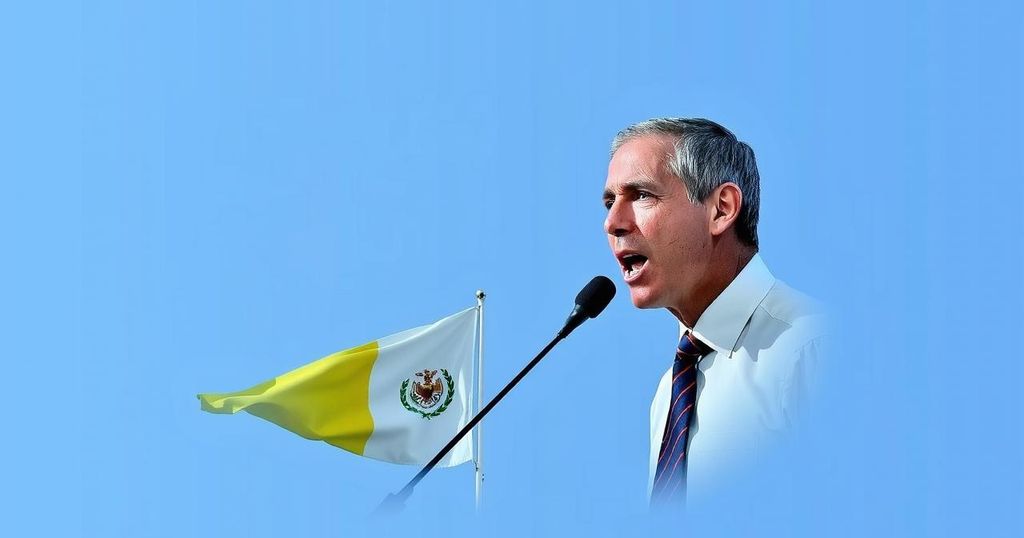Uruguay Approaches Key Presidential Run-Off As First Round Ends
Uruguay’s presidential election is set for a run-off between Yamandu Orsi of the Frente Amplio, who received 43.2 percent of the vote, and Alvaro Delgado of the Partido Nacional at 28 percent. Voters also turned down proposed referendums related to retirement age and police powers. This election highlights Uruguay’s distinct political character amid regional trends, as the electorate remains generally satisfied with the government’s performance.
Polling has concluded in Uruguay’s presidential election, which appears to be heading towards a run-off vote due to the diverse political landscape. The first round’s results indicate that Yamandu Orsi, a former history teacher and candidate for the centre-left Frente Amplio party, received approximately 43.2 percent of the votes. He will square off against Alvaro Delgado from the centre-right Partido Nacional, who garnered around 28 percent. The projected run-off will take place on November 24. Andres Ojeda, a rising figure in the race, finished third with about 15.5 to 16 percent of the votes. Pre-election analyses had anticipated that no candidate would secure more than the necessary 50 percent threshold for an outright victory. In addition to the presidential election, Uruguayans voted on two referendums addressing the proposed reduction of the retirement age to 60 and the limitations on police conducting nighttime raids. Early exit polls suggest that voters have likely rejected both measures. The election results diverge from the regional political trends observed in neighboring Latin American countries, where stark ideological divides often delineate electoral contests. In Uruguay, the candidates have demonstrated considerable alignment on various policies. This reflects a general satisfaction among the electorate regarding the current government, led by President Luis Lacalle Pou of the Partido Nacional, who maintains a 50 percent approval rating despite criticisms regarding rising crime rates. As the current President is constitutionally barred from seeking a second consecutive term, a potential victory for Orsi could signify a shift back to leftist governance after five years under conservative leadership. The presence of former President Jose ‘Pepe’ Mujica on the campaign trail, despite his health struggles, underscores the historical significance of this election. This electoral contest, with a population of 3.4 million, is seen as a pivotal moment in Uruguay’s political trajectory, particularly in the context of ongoing challenges related to crime and economic management.
Uruguay is experiencing a unique political situation as it approaches a presidential run-off election. Unlike many other Latin American countries that exhibit pronounced right-left ideological splits, Uruguay’s political landscape shows significant overlap among candidates on policy matters. The current political climate reflects a population that is generally satisfied with the government’s performance, yet grappling with issues like rising crime connected to drug trafficking. The outcome of this election could potentially redirect the country’s political currents after five years of conservative governance.
In summary, the Uruguayan presidential election is headed for an anticipated run-off vote featuring Yamandu Orsi and Alvaro Delgado following an initial round where no candidate achieved the required majority. This election serves as a critical indicator of the country’s political direction amidst broader regional dynamics. The results reflect an electorate navigating complex issues such as crime and governance, positioning Uruguay on the brink of a significant political transition.
Original Source: www.aljazeera.com




Post Comment